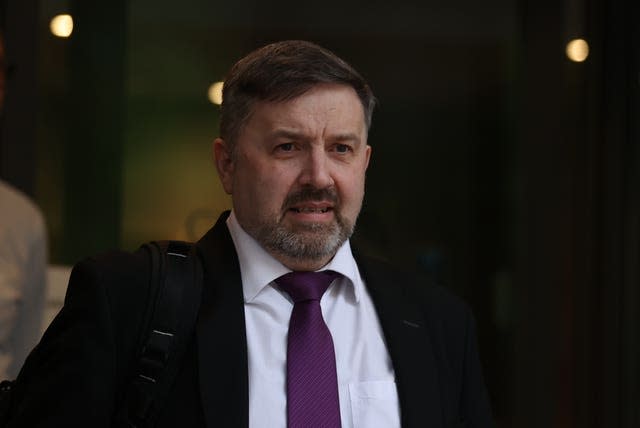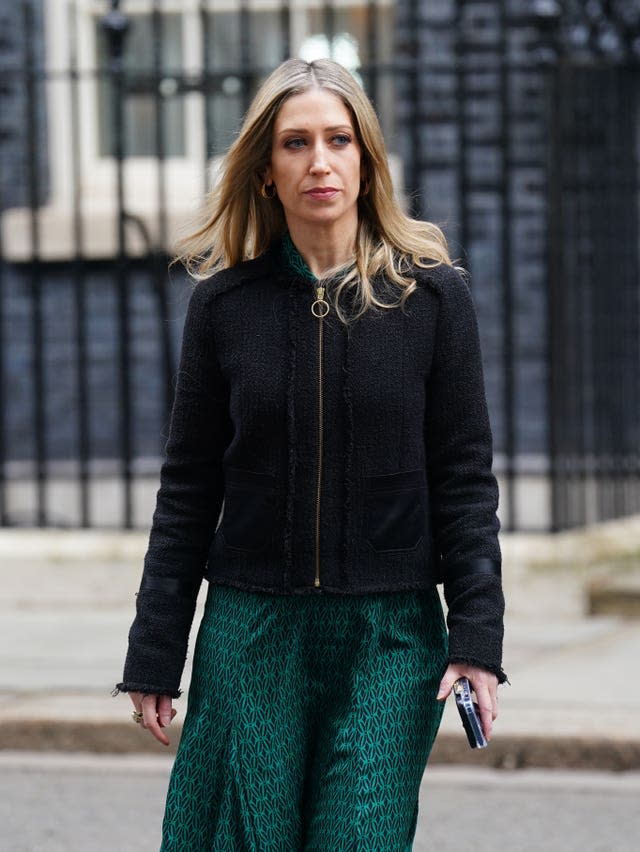Stormont and Treasury strike interim framework deal on future funding model
The Treasury has agreed to review how Stormont is funded in the future as part of a deal that will also see the Executive receive an extra £24 million this year.
The measures are part of an Interim Fiscal Framework signed off by Finance Minister Caoimhe Archibald, Chief Secretary to the Treasury Laura Trott and Northern Ireland Secretary Chris Heaton Harris in London on Tuesday.
The £3.3 billion financial deal that accompanied the restoration of devolution earlier this year included a commitment to fund Northern Ireland on a “needs-based” basis going forward.

That would apply a 24% uplift on money that flows to Northern Ireland as a consequence of spending decisions taken in England in areas where Stormont has devolved responsibility, such as health and education.
That 124% ratio on so-called Barnett consequentials was to apply on Treasury funding announcements made from the start of the current financial year and therefore excluded the Chancellor’s spring budget in March.
However, the framework deal finalised on Tuesday will see that measure backdated to when Stormont returned in February – a move that will see the 124% applied to the Barnett elements of the budget, generating an extra £24 million for Stormont coffers in 2024/25.
That extra funding will be distributed in June in the Executive’s first in-year monitoring round, which is the process by which new or unspent funds are allocated against bids from various departments.
Finance Minister, Dr @CArchibald_SF today signed an Interim Fiscal Framework on behalf of the Executive securing a commitment from Treasury to review how the Executive is funded going forward.
➡️https://t.co/WjbkXXqZut pic.twitter.com/heP3Sgwlpr
— Dept of Finance (@dptfinance) May 21, 2024
The framework agreement also includes a Treasury pledge to review the 124% calculation of additional need, if multiple independent and credible sources provide evidence that the region’s relative need is greater than that ratio.
The £3.3 billion financial package will have already been spent in Northern Ireland prior to the start of the 2026/27 financial year. This had prompted concerns that Stormont would face a financial cliff edge when the additional support dried up.
The framework also contains a commitment by Treasury to reassess the overall funding allocation to Northern Ireland prior to April 2026, as part of the process for setting the UK’s next comprehensive spending review.
The funding boost provided by the devolution package will see Northern Ireland’s funding allocation exceed the 124% relative spending ratio for 2024/25 and 2025/26.
Despite this, the interim fiscal framework includes a commitment from the Treasury to still apply the 124% to any Barnett consequentials generated over those two years.

Stormont ministers have long argued that Northern Ireland does not receive sufficient funding to meet the relative needs of the region.
The Executive in Belfast agreed a budget package last month that Ms Archibald acknowledged had left all departments short of what they required.
Health Minister Robin Swann voted against the budget, claiming it would result in dangerous cutbacks in health service delivery. He has not ruled out quitting as minister if MLAs vote the budget through when it comes before the devolved Assembly.
After the interim framework was approved on Tuesday, Dr Archibald spoke to reporters outside the Treasury.
She said the deal marked a “significant milestone” for stabilising Northern Ireland’s finances.
“It will mean additional funding for public services in the North,” she said.

She added: “Following intensive and constructive negotiations, I welcome Treasury’s agreement to reviewing the approach to funding the Executive at the relevant spending review.
“This firm commitment from Treasury starts to address our concerns over a funding cliff edge once the financial package comes to an end in 2025/26.
“It provides assurances the Executive can plan on the assumption we will be funded at or above the 124% level of relative need in future financial years.
“Treasury has agreed to the 124% needs-based adjustment factor from Barnett consequentials being applied from the date of restoration of the Executive.
“This means a further £24 million from the Spring Budget will now be available for allocation as part of June monitoring.
“Any future Barnett in 2024/25 will be at this increased level, meaning additional funding for public services here.
“Nevertheless, the budgetary position facing the Executive remains incredibly challenging. I have been and will continue making the case for increased levels of funding in public services.
“I have been clear since taking up the role of finance minister of my determination to ensure our public services are fairly and properly funded.
“This job of work is far from over.
“Today’s Framework, which has been secured at pace, is a step towards a full fiscal framework which is critical for long-term sustainability.
“I will continue to work with the chief secretary to the Treasury on a final fiscal framework, which ensures the Executive has the financial tools and necessary taxation levers to deliver sustainable public finances and public services for the people we serve.”
Chief Secretary to the Treasury Ms Trott said the “significant” deal would provide the Executive with further certainty and resources to deliver public services.
“We’ve moved at speed to deliver our plan to address the most pressing issues facing Northern Ireland’s funding and will continue to work with the Executive to secure a fair and final Fiscal Framework made possible by the strength of our Union,” she said.

 Yahoo News
Yahoo News 
